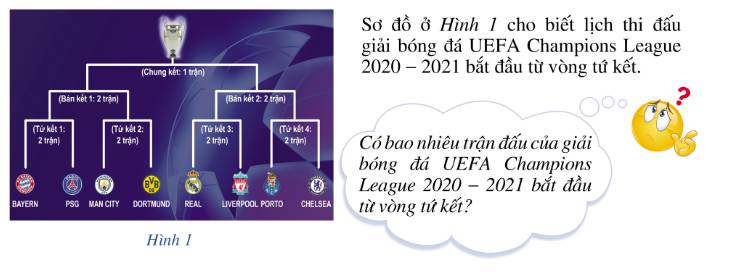
Hãy nhập câu hỏi của bạn vào đây, nếu là tài khoản VIP, bạn sẽ được ưu tiên trả lời.


\(A=\left(m-2;6\right),B=\left(-2;2m+2\right).\)
Để \(A,B\ne\varnothing\)
\(\Rightarrow\orbr{\begin{cases}m-2\ge-2\\2m+2>6\end{cases}}\Rightarrow\orbr{\begin{cases}m\ge0\\m>2\end{cases}}\)
Kết hợp ĐK \(2< m< 8\)
\(\Rightarrow m\in\left(2;8\right)\)

a ) \mathbb{R} \backslash (-3; \, 1]R\(−3;1]=(-∞;-3]∪(1;+∞)
b) (-\infty; \, 1) \backslash [-2; \, 0](−∞;1)\[−2;0]=(- (-\infty; \, 1) \backslash [-2; \, 0]∞;-2)∪(0;1)
a ) R\(−3;1]=(-∞;-3]∪(1;+∞)
b) [-2; \, 0](−∞;1)\[−2;0]= [-2; \, 0]∞;-2)∪(0;1)

✳️ Giải thích các điều kiện
📌 Điều kiện 1: \(A \subset \mathbb{R} \backslash B\)
- Tức là mọi phần tử của \(A\) không thuộc \(B\) → \(A \cap B = \emptyset\)
- Nghĩa là: Không có phần tử chung giữa \(A = \left(\right. - \infty ; m \left.\right)\) và \(B = \left[\right. 3 m + 1 ; 3 m + 2 \left]\right.\)
👉 Điều này xảy ra khi:
\(\left(\right. - \infty ; m \left.\right) \cap \left[\right. 3 m + 1 ; 3 m + 2 \left]\right. = \emptyset\)
→ Tức là:
\(m \leq 3 m + 1\)
Giải bất phương trình:
\(m \leq 3 m + 1 \Rightarrow - 2 m \leq 1 \Rightarrow m \geq - \frac{1}{2}\)
📌 Điều kiện 2: \(A \cap B \neq \emptyset\)
Tức là: phải có phần tử chung giữa \(A = \left(\right. - \infty ; m \left.\right)\) và \(B = \left[\right. 3 m + 1 ; 3 m + 2 \left]\right.\)
→ Tức là:
\(\left(\right. - \infty ; m \left.\right) \cap \left[\right. 3 m + 1 ; 3 m + 2 \left]\right. \neq \emptyset\)
→ Điều này xảy ra khi tồn tại \(x \in \left[\right. 3 m + 1 ; 3 m + 2 \left]\right.\) sao cho \(x < m\)
→ Nói cách khác:
\(3 m + 1 < m\)
Giải bất phương trình:
\(3 m + 1 < m \Rightarrow 2 m < - 1 \Rightarrow m < - \frac{1}{2}\)
✅ Kết luận
- Từ (1): \(m \geq - \frac{1}{2}\)
- Từ (2): \(m < - \frac{1}{2}\)
⛔ Hai điều kiện mâu thuẫn nhau → Không có giá trị \(m\) nào thỏa mãn đồng thời cả hai điều kiện.

a) \(B\subset A\)
\(\Rightarrow\left(-4;5\right)\subset\left(2m-1;m+3\right)\)
\(\Rightarrow2m-1\le-4< 5\le m+3\)
\(\Rightarrow\hept{\begin{cases}2m-1\ge4\\5\le m+3\end{cases}}\)
\(\Rightarrow\hept{\begin{cases}m< -\frac{3}{2}\\m\ge2\end{cases}}\left(ktm\right)\)
\(\Rightarrow m\in\varnothing\)
b) \(A\text{∩ }B=\varnothing\)
\(\Rightarrow\orbr{\begin{cases}m+3< -4\\5< 2m-1\end{cases}}\)
\(\Rightarrow\orbr{\begin{cases}m< -7\\m>3\end{cases}}\)
Vậy \(m< -7;m>3\)

Vì ABCD là hình bình hành nên ta có: \(\overrightarrow {AD} = \overrightarrow {BC} \)\(\overrightarrow {AB} + \overrightarrow {AD} = \overrightarrow {AB} + \overrightarrow {BC} = \overrightarrow {AC} \) (đpcm)

Có 7 trận: Tứ kết 1, Tứ kết 2, Tứ kết 3, Tứ kết 4, Bán kết 1, Bán kết 2, Chung kết.

a) (-\infty ; \, 2) \cap (-1; \, +\infty)(−∞;2)∩(−1;+∞)=(-1;2)
b) (−1;6) ∪ [4;8)=(-1;8]
c) (−∞;−5] ∩(−5;1)={-5}a) (-\infty ; \, 2) \cap (-1; \, +\infty)(−∞;2)∩(−1;+∞)=(-1;2)
b) (−1;6) ∪ [4;8)=(-1;8]
c) (−∞;−5] ∩(−5;1)={-5}




a) Với `m=-1` ta có:
\(\dfrac{2x-1}{2-x}+\dfrac{2x+1}{2+x}=\dfrac{4}{4-x^2}\left(x\ne\pm2\right)\\ \Leftrightarrow\dfrac{\left(2x-1\right)\left(2+x\right)}{\left(2-x\right)\left(2+x\right)}+\dfrac{\left(2x+1\right)\left(2-x\right)}{\left(2-x\right)\left(2+x\right)}=\dfrac{4}{\left(2-x\right)\left(2+x\right)}\\ \Leftrightarrow\left(2x-1\right)\left(2+x\right)+\left(2x+1\right)\left(2-x\right)=4\\ \Leftrightarrow\left(4x+2x^2-2-x\right)+\left(4x-2x^2+2-x\right)=4\\ \Leftrightarrow3x+2x^2-2+3x-2x^2+2=4\\ \Leftrightarrow6x=4\\ \Leftrightarrow x=\dfrac{4}{6}\\ \Leftrightarrow x=\dfrac{2}{3}\left(tm\right)\)
b) Vì pt có nghiệm `x=1` nên thay `x=1` vào pt ta có:
\(\dfrac{2\cdot1+m}{2-1}+\dfrac{2\cdot1-m}{2+1}=\dfrac{4}{4-1^2}\\ \Leftrightarrow2+m+\dfrac{2-m}{3}=\dfrac{4}{3}\\ \Leftrightarrow\dfrac{3\left(2+m\right)+2-m}{3}=\dfrac{4}{3}\\ \Leftrightarrow3\left(2+m\right)+2-m=4\\ \Leftrightarrow6+3m+2-m=4\\ \Leftrightarrow8-2m=4\\ \Leftrightarrow2m=6\\ \Leftrightarrow m=3\)